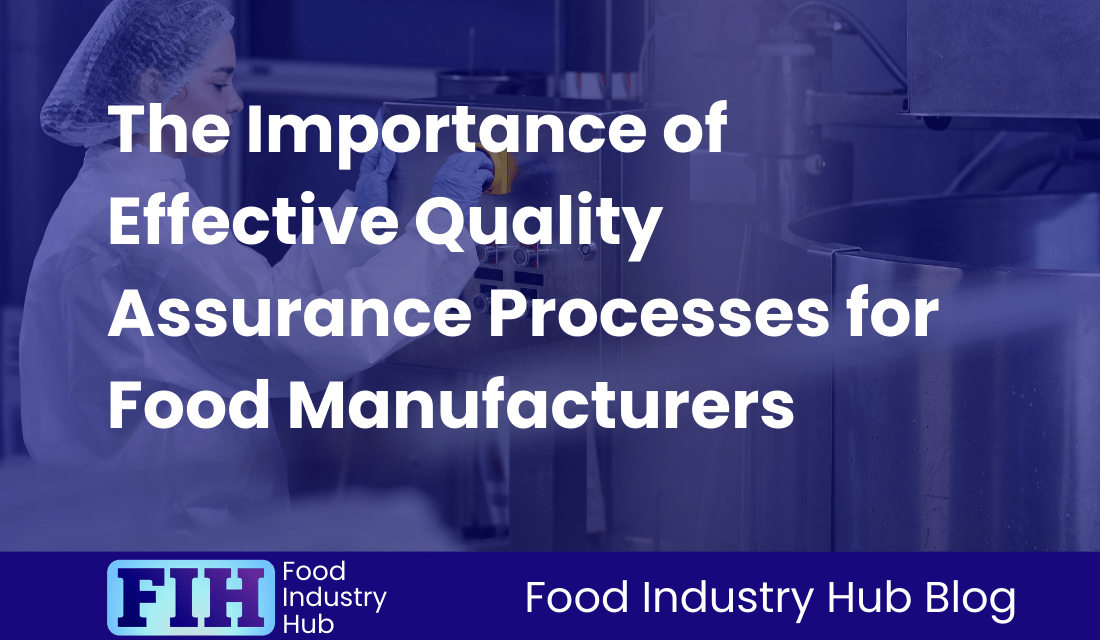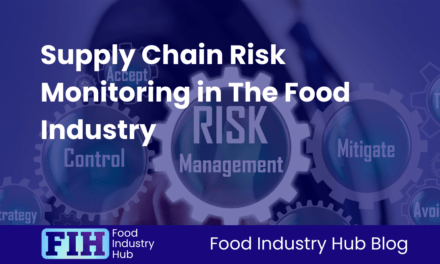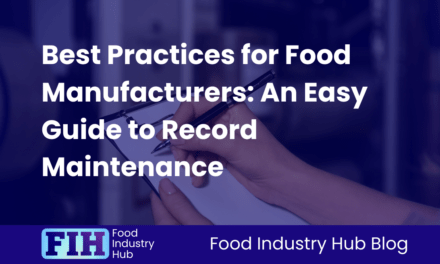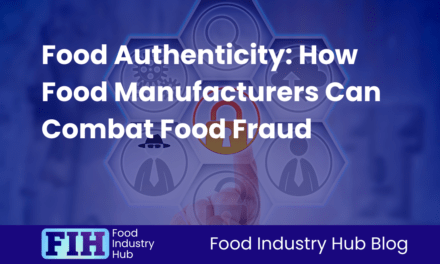Introduction
Do you ever think about how likely consumers are to switch brands if they experienced a quality or safety issue with a food product?
It’s commercially essential for food manufacturers to prioritise brand protection and customer satisfaction. Effective quality assurance processes play a vital role in ensuring the safety and consistent quality of food products.
From mitigating the risks of contamination to meeting compliance standards, these processes are essential for protecting brand reputation and improving customer satisfaction.
But that’s not all! They also help in reducing product recalls, increasing operational efficiency, and driving business growth.
So, what makes effective quality assurance processes so important for food manufacturers? Let’s explore further.
As we dive into the topic, you’ll be interested to know that Food Industry Hub offers integrated management systems for food manufacturers, which you can use to strengthen your assurance processes.
Table of Contents
Key Takeaways
- Robust quality assurance processes are literally essential for compliance purposes and consumer protection.
- Effective quality assurance systems are practically necessary for customer trust, brand reputation, and access to the market.
- Access to commercial opportunities and repeat business is dependant on the dependability of quality assurance processes.
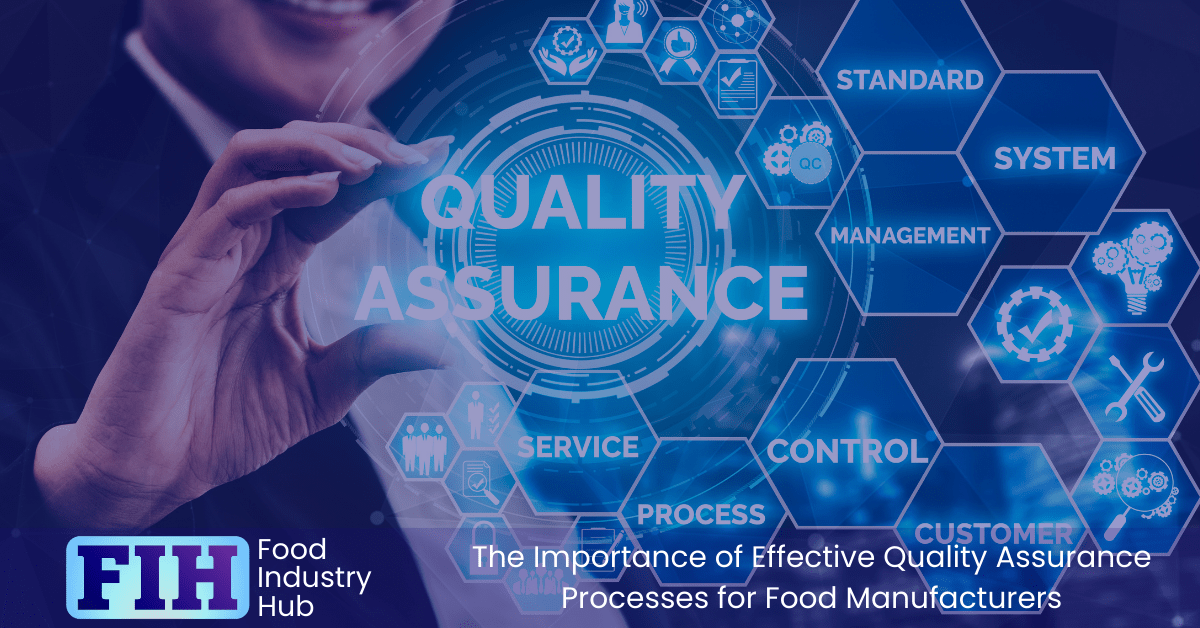
Food Industry Hub Management Systems can significantly boost the effectiveness of your food safety and quality management system, leading to improved confidence and elevated quality assurance throughout your operations.
Ensuring Product Safety
No-one would buy a food product if they thought it could be dangerous.
Consumers place a high degree of trust in the food products they purchase, relying on manufacturers and regulatory agencies to ensure the safety and quality of items available for consumption. Any indication that a food product may pose a health risk can quickly erode consumer confidence and lead to widespread avoidance of that product. This is why food manufacturers must adhere to strict safety standards, conduct rigorous testing, and provide transparent labelling to assure consumers that their products are safe to eat.
Product safety must be safeguarded through effective HACCP risk assessment and interventions to eliminate risks or reduce them to acceptable levels. This is for the assurance of consumer safety.
Managing product safety risks depends on fully understanding the risk profile of your manufacturing operations. You have to design your process in such a way as to minimise risk, and implement effective quality control processes to handle any incidents and non-conformances.
In an age of instant communication and social media, news of a potential food safety issue can spread rapidly, impacting not only the sales of the specific product but also the reputation of the entire brand. Once trust in a brand is eroded due to food safety issues, it can be challenging to rebuild that confidence. Consumers are increasingly selective about the quality and safety of the food they consume, and any perceived lapse in safety measures can have serious consequences for a brand’s reputation and bottom line. Therefore, it is crucial for food companies to prioritise and maintain the highest standards of food safety to retain consumer trust and loyalty.
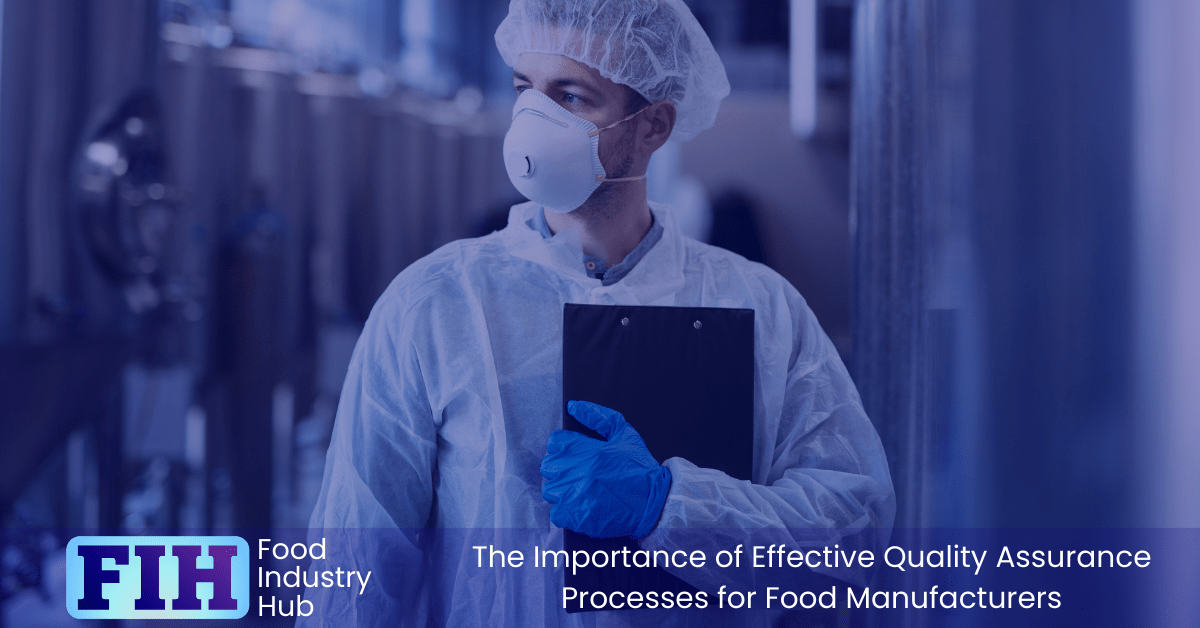
Maintaining Consistent Product Quality
People expect a reliable quality of product, and that expectation is the foundation for brand familiarity and affinity. If consumers can’t rely on a consistent and predictable quality from the food they buy, they just won’t choose that brand again.
Consistency in product quality is crucial for building trust and loyalty among consumers. When customers know they can depend on a brand to deliver the same level of quality every time they make a purchase, they are more likely to become repeat buyers and even brand advocates. On the other hand, if a brand fails to meet expectations in terms of quality, it can damage its reputation and lead to a loss of customer trust.
Effective quality assurance processes are essential for ensuring that products meet the required standards and specifications. By implementing robust quality assurance measures, companies can proactively identify and address any issues or defects in the production process before they impact the final product. This not only helps to maintain high levels of quality and consistency but also enhances customer satisfaction and trust in the brand.
Improvements to product consistency can reasonably be expected to drive increased customer loyalty, coupled with a reduction in customer complaints – so there are clear commercial advantages.
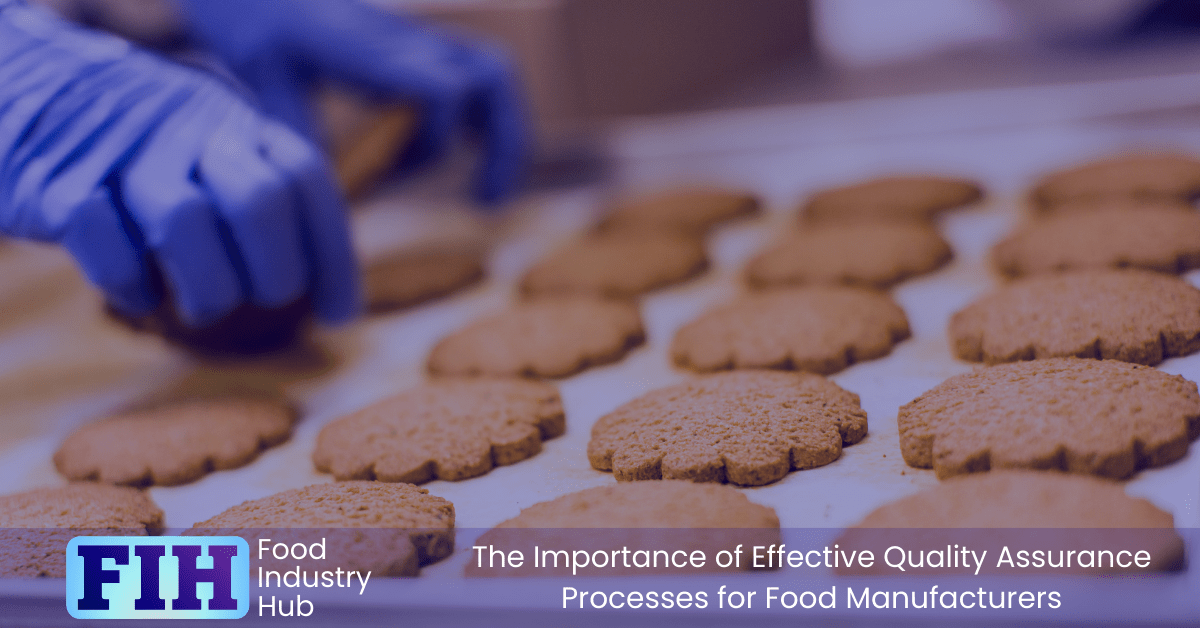
Sign-up for the Food Industry Hub Mail Service
We regularly produce new content for food industry professionals, and the Food Industry Hub Mail Service is the best way to stay up to date with the latest additions.
Signup today to be added to the Food Industry Hub mailing list.
Meeting Compliance Standards
Food cannot be legally placed upon the market if it is non-compliant with applicable laws and regulations.
Food safety regulations are in place to protect consumers from potential health risks and ensure that products meet certain standards of quality and hygiene. Failure to comply with these regulations can result in serious consequences for food producers, distributors, and retailers, including fines, product recalls, and enforcement actions. It is crucial for businesses involved in the food industry to stay informed about the latest regulations and to implement proper food safety practices to maintain compliance and protect public health. By adhering to these regulations, food businesses can build trust with consumers and demonstrate their commitment to providing safe and high-quality products.
Voluntary assurance schemes such as BRCGS Food and IFS are effectively a license to enter the market for food manufacturers. These schemes are highly regarded and recognised by retailers as signs of quality, safety, and reliability within the food industry. By achieving certification under these schemes, food manufacturers can demonstrate their commitment to meeting stringent standards and best practices, which can help build trust with both retailers and consumers. This can open up new market opportunities, as retailers often require suppliers to hold certification under such schemes before they can supply products to their stores.
Quality assurance processes play a crucial role in ensuring that products and services meet the required standards and specifications set by laws and voluntary assurance schemes. By implementing robust quality assurance systems, companies can demonstrate their commitment to producing safe, reliable, and high-quality goods and services. These processes help to prevent defects, minimise errors, and improve overall efficiency, ultimately leading to increased customer satisfaction and trust.
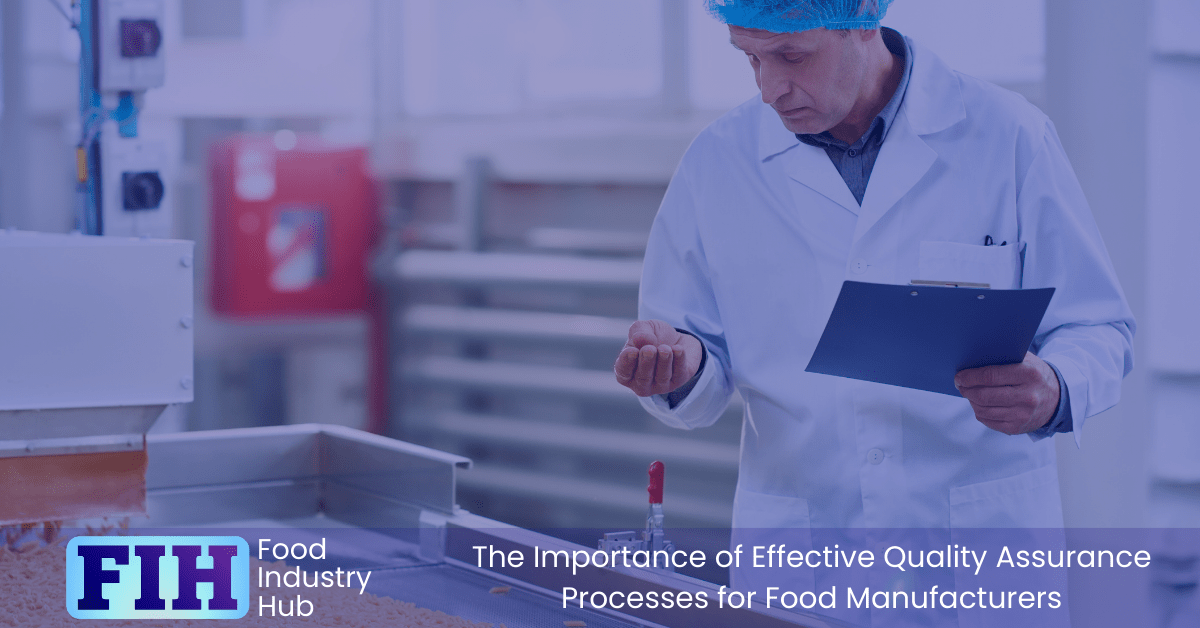
Protecting Brand Reputation
Your brand is the face of your business, and any negative incidents related to product quality can have a serious detrimental impact on your reputation. Customers expect consistent quality and safety when purchasing your products, and failure to meet these expectations can result in loss of trust and loyalty. Implementing effective quality assurance processes is essential for mitigating risks and ensuring that your products meet or exceed industry standards.
A food business’ brand is defined in part by the quality and safety perception of its products – and that perception is born out of the effectiveness of quality assurance processes implemented by the business.
Quality or safety incidents can tarnish a brand’s reputation and erode consumer trust. When customers experience issues with a product or service that result in harm or dissatisfaction, they are likely to share their negative experiences with others, impacting the brand’s image and potentially leading to a loss of customers. In today’s hyperconnected world, news of quality or safety incidents can spread rapidly through social media and online reviews, further amplifying the damage to the brand. Rebuilding trust and repairing a damaged reputation can be a long and challenging process, requiring transparency, accountability, and a commitment to making meaningful changes to prevent similar incidents in the future.
It is far preferable to maintain a positive brand reputation through the implementation of robust quality assurance processes than to have to attempt to recover from reputation damage.
Keep in mind, every batch of product placed onto the market is a representation of the brand for the consumers or customers who receive that batch – so a single bad batch can substantially impact your brand’s reputation in the market.
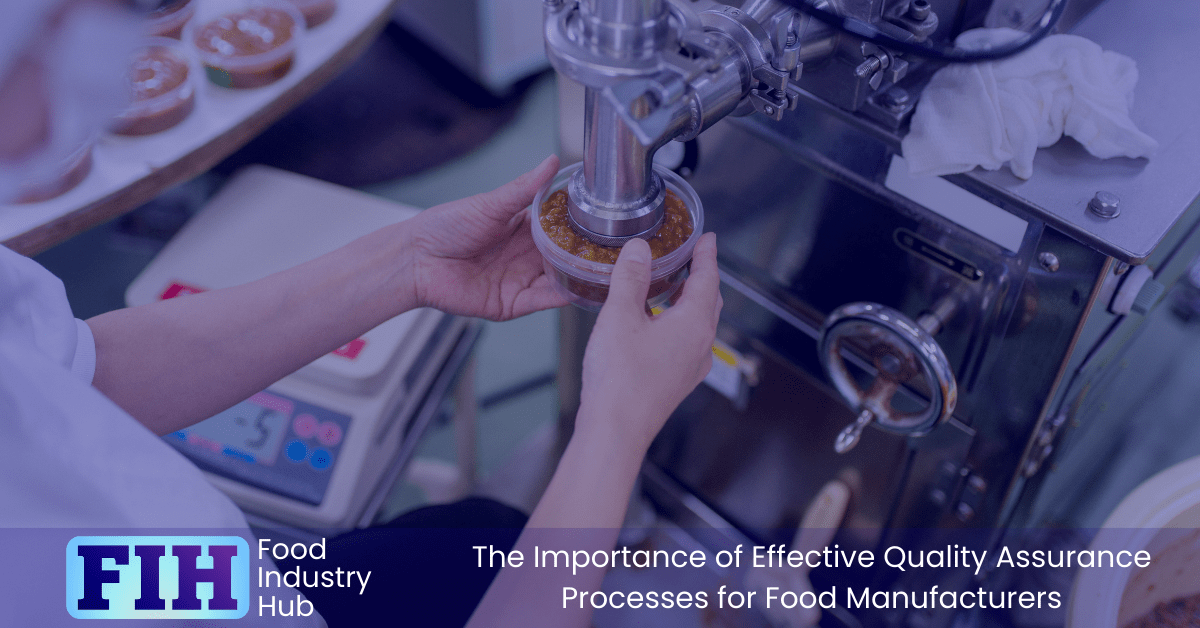
Enhancing Customer Trust
Building customer trust is essential for the long-term success of your food manufacturing business. In today’s competitive market, consumers are becoming increasingly concerned about the safety and quality of the food they consume. They want to know that the products they’re purchasing aren’t only safe to eat but also meet their expectations in terms of taste, nutritional value, and ethical sourcing. By enhancing customer trust, you can establish a strong reputation for your brand and create loyal customers who’ll continue to choose your products over those of your competitors.
One of the most effective ways to enhance customer trust is by implementing rigorous quality assurance processes, supported by regular internal audits. This involves ensuring that all ingredients and raw materials used in the production of your food products are of the highest quality and meet strict safety standards. It also involves regularly testing and monitoring your products throughout the manufacturing process to identify and address any potential issues before they reach the market.
The significance of trust here really can’t be overstated. You wouldn’t buy something from someone you don’t trust – and the same rings true for people buying food products from brands. Once the trust is gone, so is the customer.
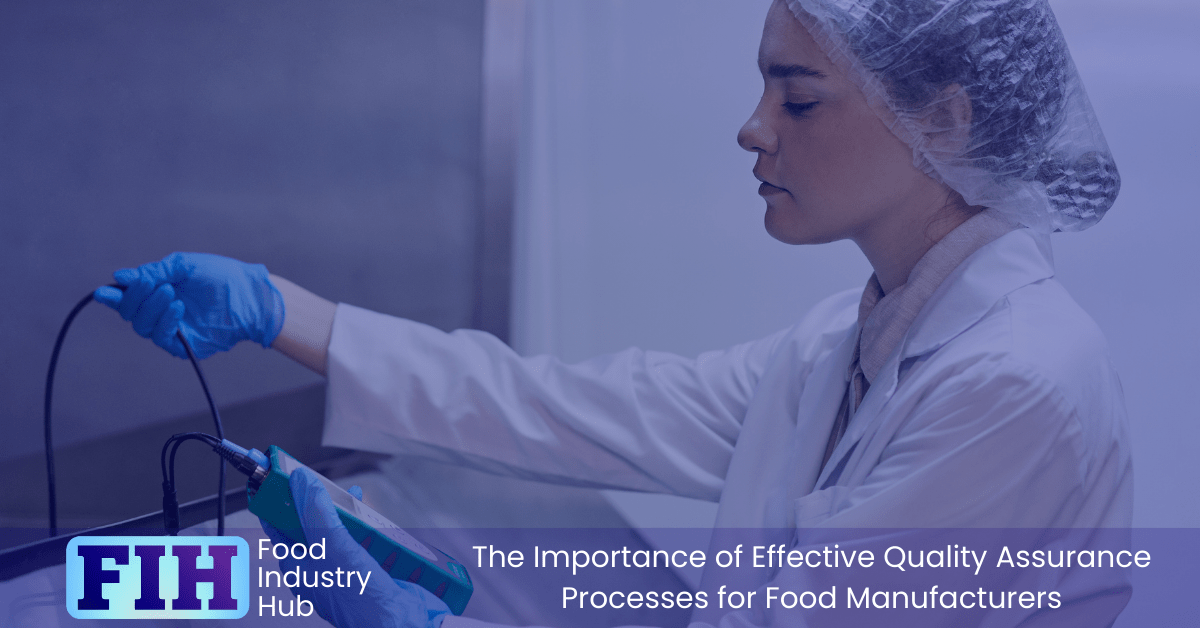
Improving Customer Satisfaction
Satisfied customers are more likely to be repeat buyers and recommend your products to others, leading to increased sales and business growth. To improve customer satisfaction, it’s essential to focus on quality assurance across your food manufacturing process.
Customers tend to be satisfied when their expectations are met, and dissatisfied then they’re not. When businesses consistently meet or exceed customer expectations, it creates a positive reputation and helps to establish long-term relationships with customers. On the other hand, failing to meet expectations can lead to disappointment, frustration, and ultimately, loss of business. It is important for businesses to actively listen to customer feedback, set realistic expectations, and continuously strive to improve their products and services in order to ensure customer satisfaction. By focusing on understanding and meeting customer expectations, businesses can enhance their reputation, increase customer loyalty, and ultimately drive growth and success.
Build customer satisfaction by consistently delivering high-quality products. This involves implementing effective quality assurance processes to ensure that your food products meet or exceed industry standards. Conduct regular quality checks throughout the production process to identify any potential issues and take corrective actions promptly. By doing so, you can minimise the chances of delivering subpar products to your customers, which could result in dissatisfaction and loss of trust.
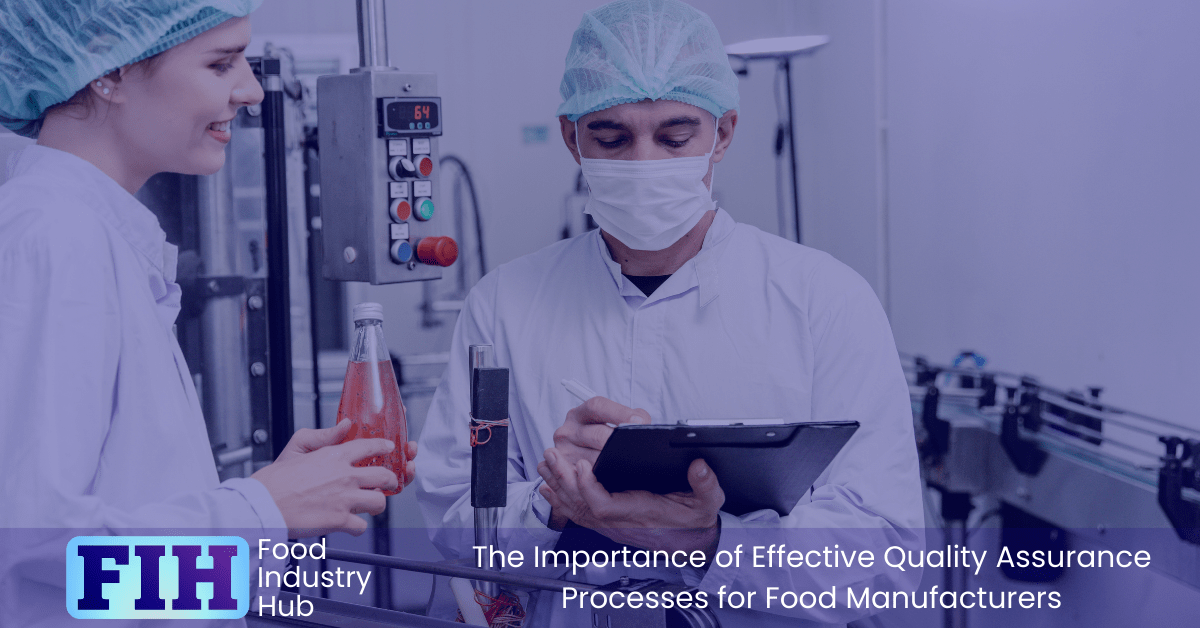
Driving Business Growth
Compliance with voluntary assurance schemes can create commercial opportunities, since many food manufacturers will only approve suppliers who are able to evidence the effectiveness of their assurance systems through a valid certificate. This effectively necessitates the implementation of a range of quality assurance processes that are required for compliance.
Having a valid certificate from a recognised voluntary assurance scheme can give suppliers a competitive edge in the market, as it demonstrates their commitment to maintaining high standards of quality and safety. This can help suppliers differentiate themselves from competitors and attract potential customers who prioritise food safety and quality in their supply chain. Additionally, compliance with these schemes can also lead to cost savings in the long run by reducing the risk of product recalls, non-compliance penalties, and potential damage to reputation. Overall, participating in voluntary assurance schemes not only opens up commercial opportunities but also helps suppliers build trust and credibility with their customers.
Fundamentally, the reason certification opens up commercial opportunities is that it demonstrates to customers that you operate credible and dependable quality assurance systems. It’s not so much that there is inherent value in a certificate as it is that the certificate represents a level of operational diligence that enables customers to feel confident enough to purchase.
Certification serves as a tangible validation of a company’s commitment to meeting industry standards and regulations, which can be crucial for gaining access to certain markets or securing partnerships with other businesses. By obtaining certification, a company showcases its dedication to excellence and compliance with recognised guidelines, which can enhance its reputation and credibility in the eyes of customers and stakeholders. This can lead to increased trust and confidence in the company’s products or services, ultimately boosting sales and opening up new avenues for growth and collaboration. In essence, certification acts as a bridge that connects businesses with opportunities by serving as a proof of their adherence to established quality and safety practices.
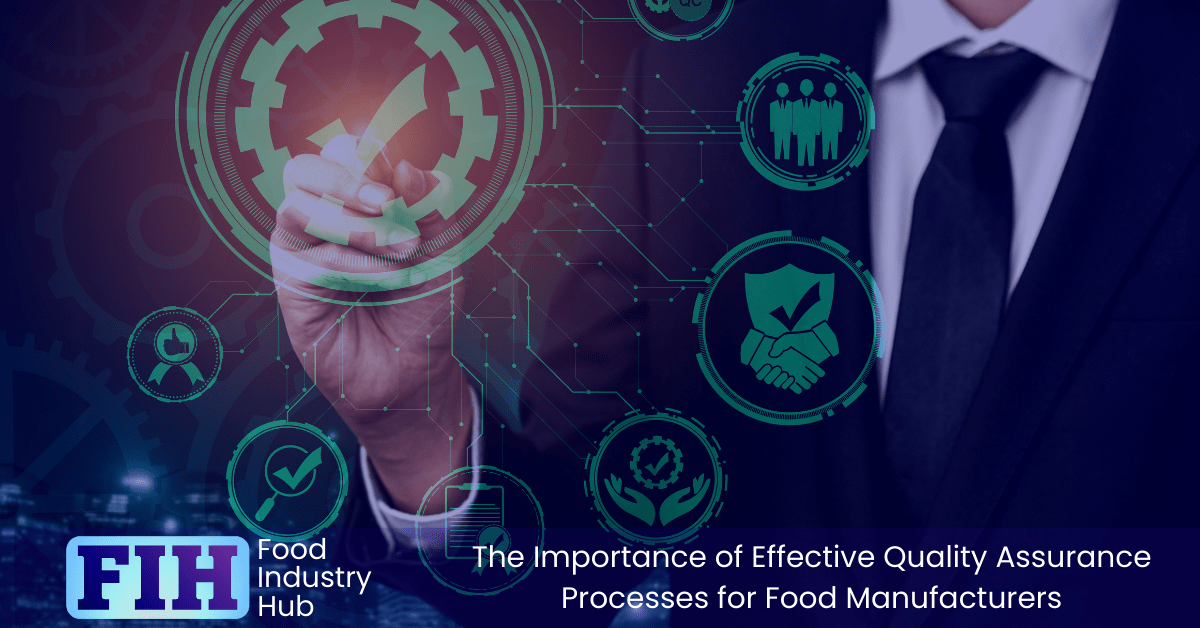
In Summary
Effective quality assurance processes hold a fundamental importance for food manufacturers. Implementing effective quality assurance processes is essential for food manufacturers to ensure the safety and quality of their products. These processes involve rigorous testing, monitoring, and documentation at every stage of production, from sourcing raw materials to packaging and distribution.
By adhering to strict quality assurance protocols, manufacturers can identify and address potential risks or issues before they impact the end consumer. This not only helps to protect public health and safety but also safeguards the reputation and credibility of the company. Additionally, having robust quality assurance processes in place can lead to improved efficiency, reduced waste, and increased customer satisfaction, ultimately contributing to the overall success and sustainability of the business.
Further Resources
Food Industry Hub serves the food industry with a range of digital resources for the benefit of both commercial food manufacturers and food industry professionals.
For food manufacturers, we offer integrated management systems that give every user a direct interface with your QMS.
For food industry professionals, we provide an extensive signposting service in addition to informational content we hope you’ll find useful as you face new professional challenges. We have very ambitious plans to expand the range of services offered, and currently present informational content on management, safety and quality, and professional success.

